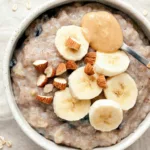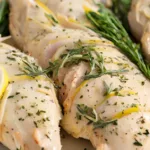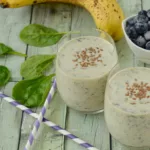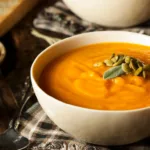How to Eat GERD-Friendly Snacks: A Complete Guide
Struggling to enjoy snacks while keeping acid reflux under control? Don’t worry! We’ve got practical and delicious solutions for eating GERD-friendly snacks that won’t upset your stomach.
Understanding GERD and Its Triggers
 GERD occurs when stomach acid flows back into the esophagus, leading to symptoms like heartburn, chest discomfort, and regurgitation. Certain foods can make this worse by relaxing the lower esophageal sphincter (LES) or increasing acid production. Understanding common triggers is key to snacking wisely. Foods like citrus, spicy ingredients, fried snacks, and carbonated drinks are often culprits. Instead, opt for snacks that are gentle on your stomach and rich in nutrients.
GERD occurs when stomach acid flows back into the esophagus, leading to symptoms like heartburn, chest discomfort, and regurgitation. Certain foods can make this worse by relaxing the lower esophageal sphincter (LES) or increasing acid production. Understanding common triggers is key to snacking wisely. Foods like citrus, spicy ingredients, fried snacks, and carbonated drinks are often culprits. Instead, opt for snacks that are gentle on your stomach and rich in nutrients.
Top GERD-Friendly Snack Ideas
1. Low-Fat Yogurt with Fresh Fruits
Low-fat yogurt can soothe your stomach lining while providing probiotics for digestive health. Pair it with non-citrus fruits like bananas, blueberries, or melons for a refreshing treat. 
2. Whole-Grain Crackers with Hummus
Whole-grain crackers are easy to digest and won’t irritate your stomach. Pair them with hummus, a creamy and low-acid dip, for a satisfying snack packed with fiber and protein.
3. Non-Citrus Smoothies
Blending bananas, almond milk, and a handful of spinach creates a GERD-friendly smoothie that’s light, creamy, and packed with nutrients. Avoid adding acidic fruits like oranges or pineapples.
4. Veggie Sticks with Greek Yogurt Dip
Raw veggies like cucumber, zucchini, and bell peppers are mild on your stomach and pair beautifully with a yogurt-based dip. This combo offers crunch and flavor without the heartburn. 
Tips for GERD-Friendly Snacking
1. Avoid Late-Night Snacking
Eating too close to bedtime can worsen GERD symptoms. Try to finish snacking at least 2–3 hours before lying down.
2. Keep Portions Small
Large portions can overfill your stomach and increase pressure on the LES. Stick to smaller servings to stay comfortable.
3. Choose Low-Fat Options
High-fat foods can slow digestion and relax the LES. Opt for low-fat or fat-free snacks to keep things light and gentle.
4. Stay Upright After Snacking
Gravity is your ally! Remaining upright for at least 30 minutes after eating can help reduce reflux symptoms.
Conclusion
GERD doesn’t mean saying goodbye to snacks. With thoughtful choices and portion control, you can enjoy tasty treats that support your digestive health. Stick to low-acid, low-fat options, and always listen to your body’s signals. Snacking smart can make all the difference in managing GERD symptoms! 
References
- American Gastroenterological Association. (2024). Managing GERD with Diet: A Comprehensive Guide. Read Article
- Johns Hopkins Medicine. (2024). Tips for Controlling GERD Symptoms. Read Article
- National Institutes of Health. (2024). Dietary Tips for Acid Reflux Patients. Read Article
FAQs
- What snacks are best for GERD? Non-citrus fruits, low-fat yogurt, whole-grain crackers with hummus, and veggie sticks with yogurt dip are great options.
- Can I eat nuts if I have GERD? Some nuts, like almonds, are less likely to trigger GERD. Avoid high-fat or salted varieties.
- Is popcorn GERD-friendly? Plain, air-popped popcorn can be a safe option, but avoid butter or added flavors.
- Can I drink smoothies with GERD? Yes, as long as you use non-acidic ingredients like bananas, almond milk, and spinach.
- Should I avoid snacks before bedtime? Absolutely. Eating 2–3 hours before sleeping helps prevent nighttime reflux symptoms.
Disclaimer: This information is for educational purposes and does not substitute for professional medical advice. Always consult your doctor or dietitian for guidance tailored to your specific needs.

Camellia Wulansari is a dedicated health writer specializing in digestive disorders, contributing valuable insights and information to the health and wellness community. With a passion for promoting well-being through knowledge, Camellia serves as a reliable source of expert content on healthusias.com.














